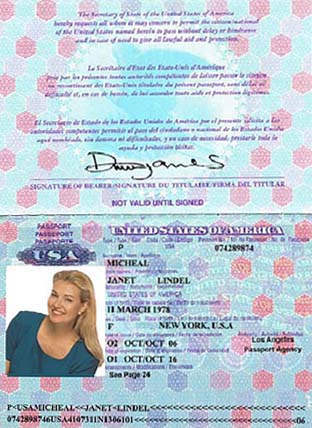Related Research Articles

An advance-fee scam is a form of fraud and is one of the most common types of confidence tricks. The scam typically involves promising the victim a significant share of a large sum of money, in return for a small up-front payment, which the fraudster claims will be used to obtain the large sum. If a victim makes the payment, the fraudster either invents a series of further fees for the victim to pay or simply disappears.

A scam, or confidence trick, is an attempt to defraud a person or group after first gaining their trust. Confidence tricks exploit victims using a combination of the victim's credulity, naïveté, compassion, vanity, confidence, irresponsibility, and greed. Researchers have defined confidence tricks as "a distinctive species of fraudulent conduct ... intending to further voluntary exchanges that are not mutually beneficial", as they "benefit con operators at the expense of their victims ".

Pump and dump (P&D) is a form of securities fraud that involves artificially inflating the price of an owned stock through false and misleading positive statements (pump), in order to sell the cheaply purchased stock at a higher price (dump). Once the operators of the scheme "dump" (sell) their overvalued shares, the price falls and investors lose their money. This is most common with small-cap cryptocurrencies and very small corporations/companies, i.e. "microcaps".

Internet fraud is a type of cybercrime fraud or deception which makes use of the Internet and could involve hiding of information or providing incorrect information for the purpose of tricking victims out of money, property, and inheritance. Internet fraud is not considered a single, distinctive crime but covers a range of illegal and illicit actions that are committed in cyberspace. It is, however, differentiated from theft since, in this case, the victim voluntarily and knowingly provides the information, money or property to the perpetrator. It is also distinguished by the way it involves temporally and spatially separated offenders.

A lottery scam is a type of advance-fee fraud which begins with an unexpected email notification, phone call, or mailing explaining that "You have won!" a large sum of money in a lottery. The recipient of the message—the target of the scam—is usually told to keep the notice secret, "due to a mix-up in some of the names and numbers," and to contact a "claims agent." After contacting the agent, the target of the scam will be asked to pay "processing fees" or "transfer charges" so that the winnings can be distributed, but will never receive any lottery payment. Many email lottery scams use the names of legitimate lottery organizations or other legitimate corporations/companies, but this does not mean the legitimate organizations are in any way involved with the scams.
In business, the term boiler room refers to an outbound call center selling questionable investments by telephone. It usually refers to a room where salespeople work using unfair, dishonest sales tactics, sometimes selling penny stocks or private placements or committing outright stock fraud. A common boiler room tactic is the use of falsified and bolstered information in combination with verified company-released information. The term is pejorative: it is often used to imply high-pressure sales tactics and, sometimes, poor working conditions.
The white van speaker scam is a scam sales technique in which a con artist makes a buyer believe they are getting a good price on home entertainment products. Often a con artist will buy inexpensive, generic speakers and convince potential buyers that they are premium products worth hundreds or thousands of dollars, offering them for sale at a price that the buyer thinks is heavily discounted, but is actually a heavy markup from their real value. Con artists in this type of scam call themselves "speakerguys" or "speakermen", and usually claim to be working for a speaker delivery or installation company.

Cold calling is the solicitation of business from potential customers who have had no prior contact with the salesperson conducting the call. It is an attempt to convince potential customers to purchase either the salesperson's product or service. Generally, it is referred as an over-the-phone process, making it a source of telemarketing, but can also be done in-person by door-to-door salespeople. Though cold calling can be used as a legitimate business tool, scammers can use cold calling as well.
Charity fraud is the act of using deception to obtain money from people who believe they are donating to a charity. Often, individuals or groups will present false information claiming to be a charity or associated with one, and then ask potential donors for contributions to this non-existent charity. Charity fraud encompasses not only fictitious charities but also deceptive business practices. These deceitful acts by businesses may involve accepting donations without using the funds for their intended purposes or soliciting funds under false pretenses of need.

A romance scam is a confidence trick involving feigning romantic intentions towards a victim, gaining the victim's affection, and then using that goodwill to get the victim to send money to the scammer under false pretenses or to commit fraud against the victim. Fraudulent acts may involve access to the victim's money, bank accounts, credit cards, passports, e-mail accounts, or national identification numbers; or forcing the victims to commit financial fraud on their behalf.
Voice phishing, or vishing, is the use of telephony to conduct phishing attacks.
In a reloading scam, a victim is repeatedly approached by con artists, often until "sucked dry". This form of fraud is perpetrated on those more susceptible to pressure after the first losses, perhaps because of hopes to recover money previously invested, perhaps because of inability to say "no" to a con man.
Telemarketing fraud is fraudulent selling conducted over the telephone. The term is also used for telephone fraud not involving selling.

A work-at-home scheme is a get-rich-quick scam in which a victim is lured by an offer to be employed at home, very often doing some simple task in a minimal amount of time with a large amount of income that far exceeds the market rate for the type of work. The true purpose of such an offer is for the perpetrator to extort money from the victim, either by charging a fee to join the scheme, or requiring the victim to invest in products whose resale value is misrepresented.

A technical support scam, or tech support scam, is a type of fraud in which a scammer claims to offer a legitimate technical support service. Victims contact scammers in a variety of ways, often through fake pop-ups resembling error messages or via fake "help lines" advertised on websites owned by the scammers. Technical support scammers use social engineering and a variety of confidence tricks to persuade their victim of the presence of problems on their computer or mobile device, such as a malware infection, when there are no issues with the victim's device. The scammer will then persuade the victim to pay to fix the fictitious "problems" that they claim to have found. Payment is made to the scammer through ways which are hard to trace and have fewer consumer protections in place which could allow the victim to claim their money back, usually through gift cards.
An IRS impersonation scam is a class of telecommunications fraud and scam which targets American taxpayers by masquerading as Internal Revenue Service (IRS) collection officers. The scammers operate by placing disturbing official-sounding calls to unsuspecting citizens, threatening them with arrest and frozen assets if thousands of dollars are not paid immediately, usually via gift cards or money orders. According to the IRS, over 1,029,601 Americans have received threatening calls, and $29,100,604 has been reported lost to these call scams as of March 2016. The problem has been assigned to the Treasury Inspector General for Tax Administration.
Utility scams are fraudulent acts where a perpetrator calls or arrives unannounced at a utility customer's house in an attempt to take money or sell unnecessary energy accessories through misrepresentation. Often, the fraud involves telling the victim that he or she owes the utility company money and that their power, gas, or water will be shut off immediately unless payment is made.
An SSA impersonation scam, or SSA scam, is a class of telecommunications fraud and scam which targets citizens of the United States by impersonating personnel of the Social Security Administration. SSA scams are typically initiated by pre-recorded messages, or robocalls, which are designed to panic the victim so that they follow the scammer's instructions. In 2018, over 35,000 incidences of SSA scam robocalls were reported to the Better Business Bureau, and the total losses of victims added up to over $10 million. It is believed that approximately 47% of Americans were subject to an SSA impersonation scam robocall during a three-month period in mid- to late 2020, and that 21% of seniors were targeted by at least three SSA scam robocalls in the same time period.

COVID-19 scams are frauds whose cover story primarily relies on the existence of the COVID-19 pandemic. Such scams have been reported in multiple countries, primarily the United States, Canada and the United Kingdom.
References
- ↑ Brenoff, Ann (July 27, 2017). "How A Billion-Dollar Internet Scam Is Breaking Hearts And Bank Accounts". HuffPost .
- ↑ Palmer, Kate (May 16, 2015). "Are you on a charity sucker list?" . The Daily Telegraph .
- ↑ "Reloading Scams: Double Trouble for Consumers". Federal Trade Commission .
- ↑ Holdren, Wendy (April 7, 2019). "BBB warns of "sucker list" scams". The Register-Herald .
- ↑ "Refund and Recovery Scams". Federal Trade Commission.
- ↑ "Sucker List". Time . November 18, 1929.
- ↑ "Sucker List (1941)". IMDb.